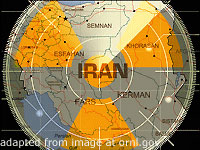Early breakthroughs unlikely in talks with Iran

(Russia Beyond the Headlines – rbth.ru – Andrei Ilyashenko, special to RBTH – October 21, 2013)
The only outcome of the Geneva talks between Iran and the ‘group of six’ was an agreement to hold a new round of talks in November.
A group of six mediators and the Iranian delegation recently concluded the latest round of Geneva talks on Iran’s nuclear issue. The only formal outcome of the meeting was agreement on a new round of talks that will take place in just a few weeks, in early November. However, a significant shift was the fact that Iran put forward a new plan for resolving the issue.
At the beginning of the talks, the foreign minister of Iran, Mohammad Javad Zarif, and his team took about an hour to present a three-phase plan that would resolve the long-running nuclear standoff, “within a year” or sooner. Right before the negotiations, U.S. Secretary of State John Kerry had also talked about solving the problem in 36 months.
Details of the plan were not disclosed. However, it is very clear what Russia, the United States, China, Britain, France and Germany want from Iran.
On the eve of the talks, Russian Deputy Foreign Minister Sergei Ryabkov said, “Leaders of the country [Iran] repeatedly conducted negotiations, including at the highest levels of government, and stated that nuclear weapons are unacceptable. However, the international community has some questions that remain open. The faster decisions will be made at the top to eliminate these concerns, the less there will be reason to argue if Iran currently chooses to be at peace or war.”
Iran showed its willingness to “resolve the questions.” On the first day of talks in Geneva, the leading nuclear negotiator, Abbas Araqchi, said that Tehran is ready to extend the authority of the U.N. inspectors to access its nuclear facilities.
According to ITAR-TASS news agency, which cited a source in the Iranian delegation, the plan proposed to the group of six in Geneva involves two phases of confidence-building measures. In the first phase, which will last 36 months, Tehran would suspend the enrichment of uranium to 20 percent. In addition, Iran is ready to provide more detailed information about the heavy water reactor at Arak.
In the second stage, the volume of uranium that is enriched and the number of centrifuges installed at Iranian facilities would both be reduced. This stage, according to the Iranian proposals, could last about one year.
This is a significant concession and an obvious step forward. However, the Iranian official news agency IRNA reported that the Iranian proposal does not imply it that the country plans to adhere to the Protocol to the Treaty on the Non-Proliferation of Nuclear Weapons, which allows unannounced inspections of any facility. This measure is comprehensive and highly desirable, but it is also extremely sensitive for Iran, which has military programs that may be non-nuclear but serious.
The next rounds of negotiations will determine whether Iran’s adherence to the Protocol is key, or a so-called “inquiry position” on which the parties can negotiate.
It is clear that Iran seemed to believe in the euphoric mood over a possible breakthrough in negotiations, due to the high marks the West has given Rouhani, the new president of Iran, and because of the significant warming in relations between Washington and Tehran. Now, however, Iran seems to be disappointed.
Speaking to reporters in Geneva, Abbas Araqchi questioned the statements of EU representative Michael Mann, who said that Tehran should take the first step toward meeting its international obligations. “Mr. Mann said the atmosphere of the talks was positive, but his words are disappointing. If we felt that there was a balance at this stage and we could take reciprocal steps, then we could say that progress was made in the negotiations. However, no conducive steps have been made yet toward rapprochement,” said the Iranian diplomat in reference to the EU.
The Iranians know that they are still not considered “good guys” and are being asked to turn out their pockets, yet they seem to be striving for equal status. “Iran is a regional power, by the very fact of its existence, and just wants to be recognized as such,” said Sergei Seryogichev, an expert from Moscow’s Institute of the Middle East.
This, however, is a difficult task. According to Anton Khlopkov, a member of the expert group on international security at the Russian Security Council, the Iranian crisis has a long history related not only to its nuclear program, but also to Iranian-American relations in general.
“Iran’s statements suggest a willingness to compromise, but everyone needs to be patient. It will take many months to restore the trust that was lost over more than three decades of enmity,” the expert says.
Similar responses were heard from Russian diplomats. “The positions of Iran and the group of six are separated by miles, and they are moving forward in small steps,” said Deputy Foreign Minister Sergei Ryabkov, appraising the negotiation process.
Article also appeared at http://rbth.ru/international/2013/10/21/early_breakthroughs_unlikely_in_talks_with_iran_30993.html
